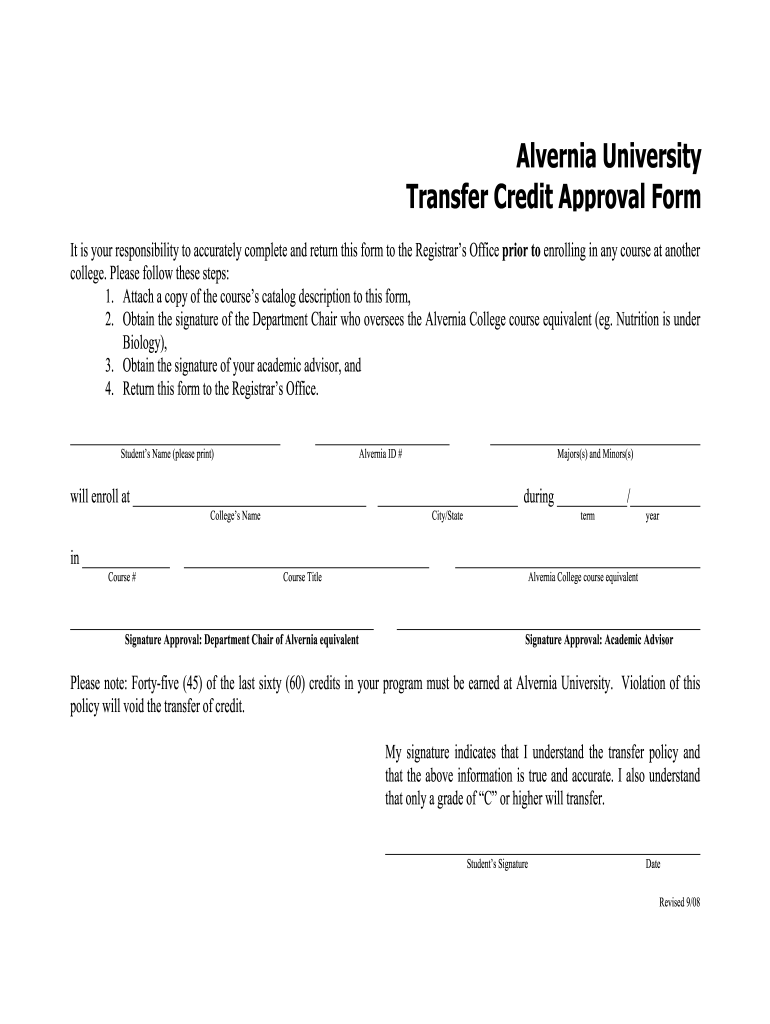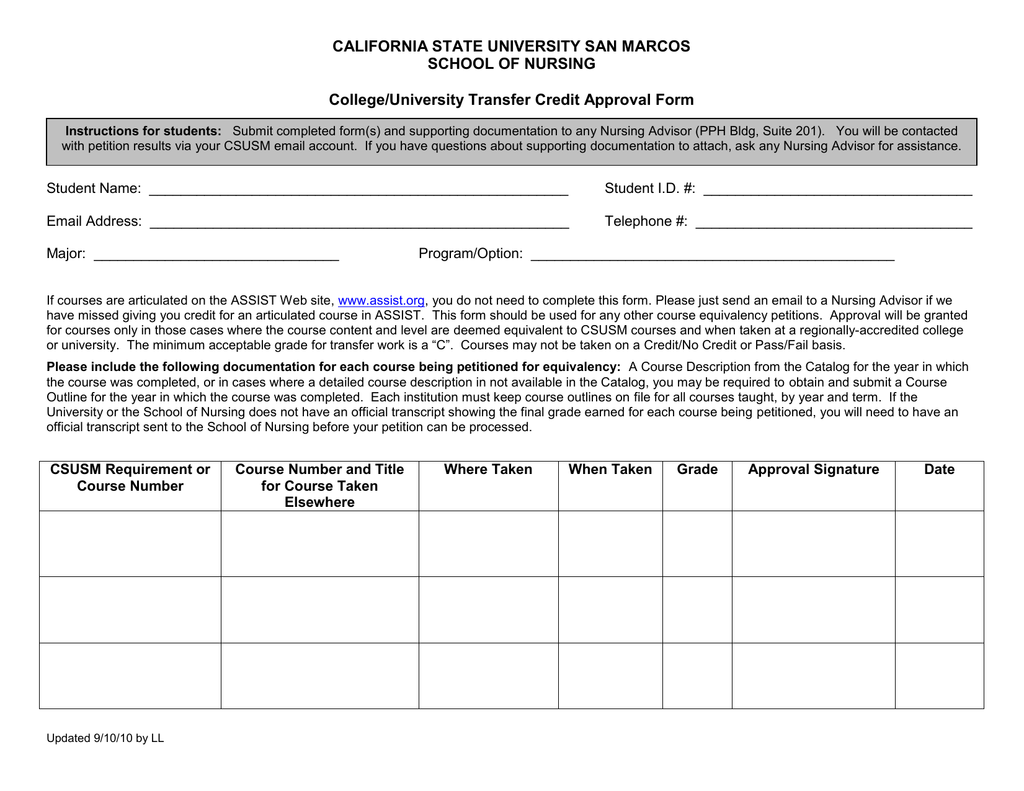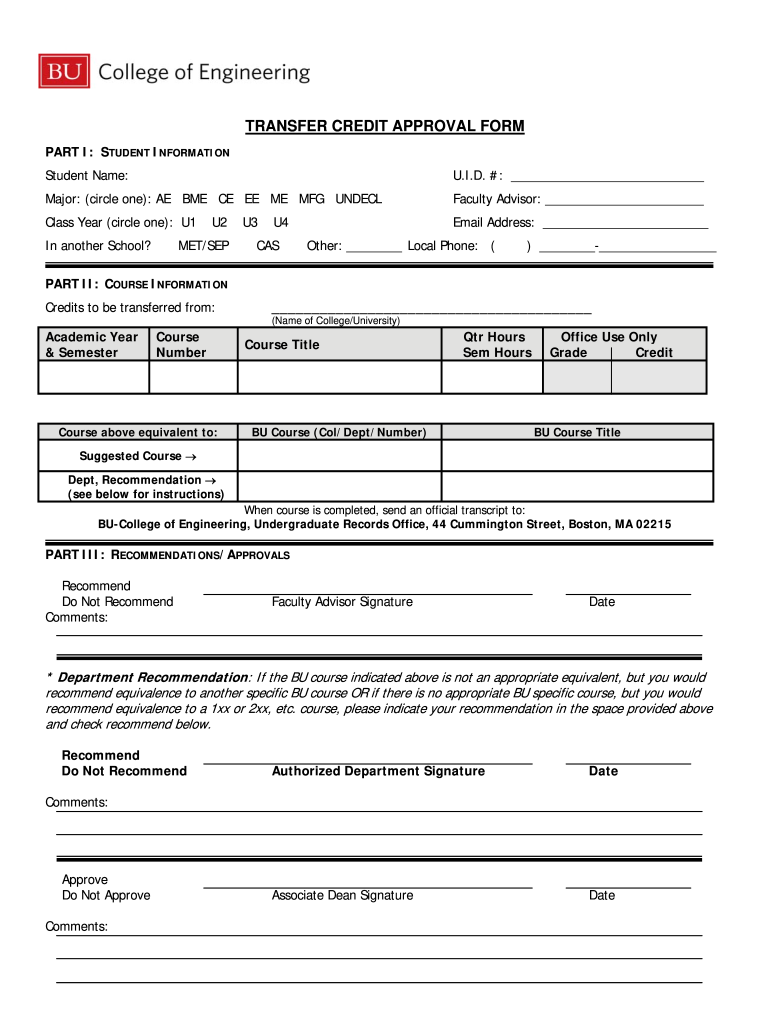Boston University Transfer Credit Approval Form – If you’re unclear about the transfer process in general, you could submit you with the Transfer Credit Acquired form, or the TCAF. There could be a course that you didn’t complete or you didn’t get a mark for which you’re wondering if you can utilize it for your degree. It’s good news that you could. Most courses that score grades of C or better will not require material review. It is important to keep in mind those courses that do not transfer to a specific U.M. class is considered departmental credit. If it’s not, you cannot apply it to a U-M program and it could not meet the requirements of the degree.
Coursework must earn a grade equivalent to C or higher.
In order for your courses to be transferred to another institution, they must have been awarded the grade of C or better. In order to be eligible for transfer credits, they must have been completed at an accredited institution which includes the Higher Learning Commission or the Middle States Association of Colleges and Schools (MASAC). International programs are evaluated individually. Official transcripts have to be supplied directly to CCS. Your previous institution should have accepted the courses.
If you wish to transfer credits to your old college, classes taken at a foreign institution must have a minimum grade of C or better. Scores of pass/satisfactory aren’t transferable, nor is development coursework, college algebra or technical and career courses. However this policy has been updated during the COVID-19 epidemic, and any courses that were taken prior to then are now accepted.
To earn transfer credits, courses taken at regionally accredited institutions must have received a grade which is “C” or better in the previous institution. To transfer credits the courses must have a similar scope and subject matter. While a grade of C is the minimal requirement for transferable credits Some institutions also accept marks of “D” or higher. Accreditation institutions comprise these bodies: the Middle States Association of Colleges and Schools The New England Association of Schools and Colleges and the Northwest Association of Schools and Colleges, together with Southern Association of School and Colleges.
TCEL lists courses that were transferred to Clemson prior to. The list is not a complete listing, and any courses not mentioned here will need to be assessed when applying to Clemson. It is also worth noting that the TCEL listing also lists some course equivalents, but the list doesn’t reflect the differences in the number of credit hours offered by different institutions. While the TCEL lists courses that are equivalent to courses at other institutions However, the Office of Admissions’ evaluations are based on current data.
While the previous coursework could be acceptable to you, it is essential to review the academic consequences. If you are unable to finish the course work and you are unable to complete it, you might want to try again. Make sure you earn at the very least a “C” in the course and fulfill any rules that the university requires. Taking a course two or three times can impact your GPA cumulatively therefore be cautious before deciding to repeat it.





